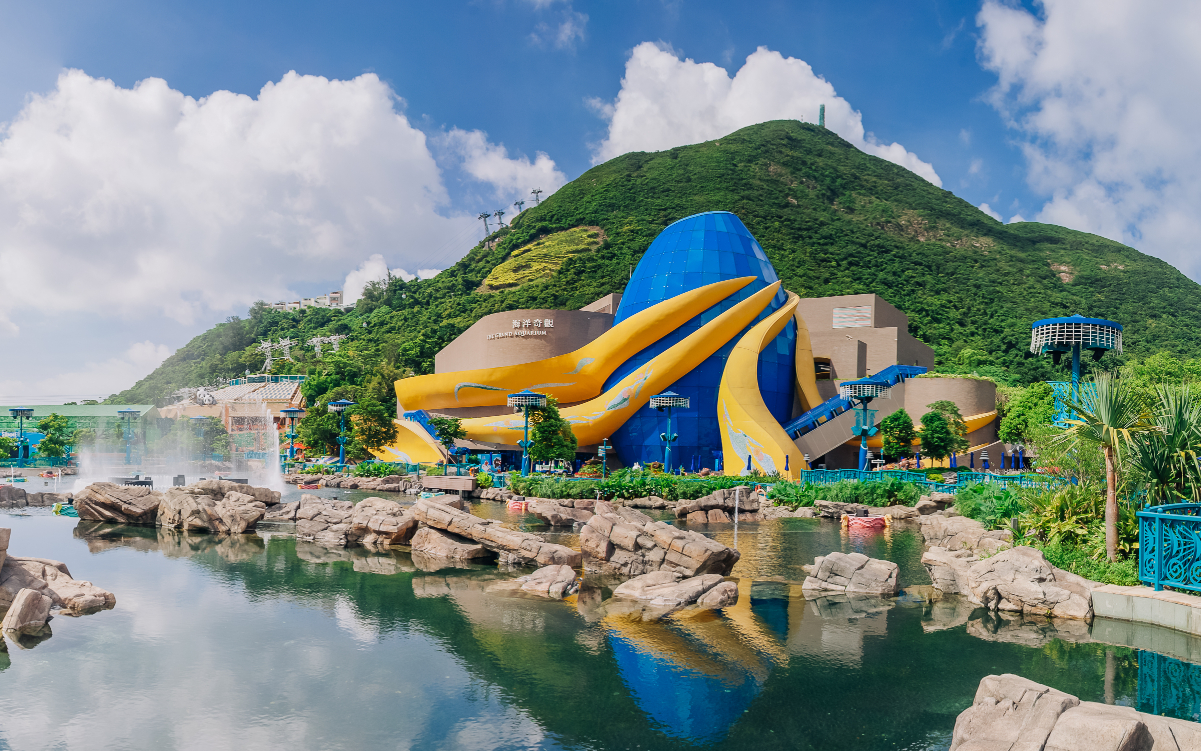-
Ocean Park announced the passing of its eldest Indo-Pacific bottlenose dolphin, “Jessie”. She passed away peacefully at the Marine Mammal Breeding and Research Centre (MMBRC) last night at 10:30pm at the grand age of about 44 years old under the care of people who have looked after her throughout her 38 years at Ocean Park. The cause of death, based on preliminary clinical and necropsy findings, was severe renal dysfunction and abdominal infection (peritonitis). Further tests are pending. On the same day in the morning, a seven-year-old Chinese giant salamander passed away and its cause of death is under examination.
Ms. Suzanne Gendron, Executive Director of Zoological Operations and Education, said, “This is a day we knew would eventually come for Jessie but it is nevertheless a sad day for everyone at the Park. Jessie has been with Ocean Park for 38 years. She was a member of our family and she will be deeply missed, especially by the Park’s animal care team members who had been a part of her life for almost four decades. We want to thank Jessie for all of the wonderful things she brought to the Park and our visitors, as she was a true ambassador for conservation and educational messaging.”
“Jessie was about five to six years of age when she first arrived in Hong Kong from the Peng Hu islands, Taiwan in January 1978. During her time at Ocean Park, Jessie took part in the presentation and education programmes at Ocean Theatre, Dolphin University and at the MMBRC, contributing to science and a greater understanding of her species. Her daughter ‘Maya’ is now 15 years of age. Jessie was powerful and energetic. Her matriarchal role with the other dolphins was very important, while her playful character has gained popularity and love from staff members and guests of the Park over the years.” Ms. Gendron continued, “Jessie was estimated to be 44 years old when she passed away, which is well beyond the maximum life expectancy of 37 years that the species can live to in the wild. Jessie’s advanced age was a remarkable accomplishment and a testament to the great care and attention she received from the animal care and veterinary staff of the Park. A memorial corner for Jessie will be established at the MMBRC starting from 12 January for guests to pay tribute to their beloved animal ambassador.”
On Saturday, 9 January, Jessie’s appetite slowed and did not resume by Sunday morning. A blood test found that she had developed severe kidney dysfunction, of which the onset was very sudden as her blood sample and kidney values were normal just two days prior. Despite all efforts of the Park’s veterinary team, Jessie’s condition deteriorated and she subsequently passed away. The Hong Kong Agriculture, Fisheries and Conservation Department (AFCD) were notified of Jessie’s death. A post-mortem examination was conducted today and preliminary results suggest a severe infection in the abdomen (peritonitis). Histopathology results will be available within a month and should provide further insight into the cause of her sudden illness.
On the same day in the morning, a seven-year-old Chinese giant salamander passed away. Since December 2015, the salamander had been displaying signs of inappetence and anemia. The Park's animal care and veterinary teams had been closely monitoring its condition, providing it with supportive care and treatment. Last week, it underwent additional diagnostic procedures to determine the cause of its illness. Unfortunately, its condition deteriorated and it subsequently passed away yesterday morning. A necropsy was conducted yesterday as a matter of standard protocol but was inconclusive as to the cause of death. Histopathology results are pending and will provide more information into the cause of death.
“We are extremely saddened by the loss of the Chinese giant salamander. We will take the necessary actions to determine the cause of the situation,” said Ms. Gendron.
The deceased Chinese giant salamander was donated as part of an ex-situ conservation breeding programme by the National Aquatic Wildlife Conservation Association (NAWC) in 2011 and was residing at the back-of-house habitat together with another salamander that was donated by the AFCD in 2003. There are also three other salamanders that are part of the NAWC/Ocean Park breeding programme residing at the Amazing Asian Animals exhibit. Currently, the remaining four Chinese giant salamanders are in good health.
The Agriculture, Fisheries and Conservation Department and National Aquatic Wildlife Conservation Association were notified of the loss of the Chinese giant salamander.

当園の楽しみ方
- 季節のイベント
- Panda Zone
- アトラクション

Annual Membership
- Ocean Park Annual Membership
- Member Offers
- Current Members
- Ticket Conversion






